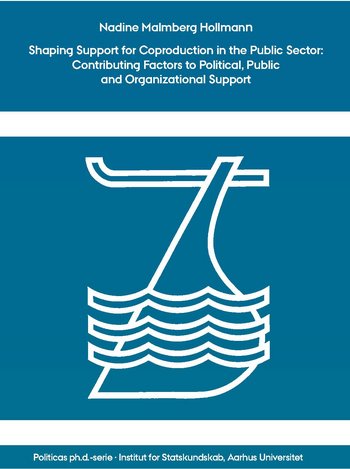Nadine Malmberg Hollmann
Shaping Support for Coproduction in the Public Sector: Contributing Factors to Political, Public and Organizational Support

A growing tendency is observed in Western welfare states to adopt policies aimed at rethinking the traditional structures of service delivery. One policy receiving increasing attention from decision-makers encourages citizens to provide greater input to services by involving them as coproducers. While coproduction holds both promises and risks for the public sector, its growing prominence highlights the need to better understand what fosters or hinders its occurrence. Literature suggests that policies are more likely to be adopted when they receive support from the political system, the public, and government institutions. However, empirical evidence on contributing factors to political, public, and organizational support for coproduction remains scarce. This dissertation focuses on Danish eldercare and investigates, using four preregistered survey experimental studies, potential contributing factors to political, public, and organizational support for coproduction as seen by three key actors: policymakers, citizens, and service agency managers. Policymakers are more supportive of coproduction when facing a risk of service decline rather than prospects of service stability. They also prefer complementary tasks over core service tasks, associating the latter with higher political costs. Citizens support involvement of volunteers over relatives and favor complementary tasks over core service tasks, associating the latter with lower effectiveness, efficiency, responsiveness, and equity. Agency managers mainly prioritize coproduction encouragements from principals within the organizational hierarchy, indicating the importance of protecting organizational resources. These findings emphasize how adopting coproduction is shaped by political and organizational priorities, resource dependencies, perceptions of service quality, and risks of conflict and costs.
![]() Ophavsretten tilhører Politica. Materialet må ikke bruges eller distribueres i kommercielt øjemed.
Ophavsretten tilhører Politica. Materialet må ikke bruges eller distribueres i kommercielt øjemed.